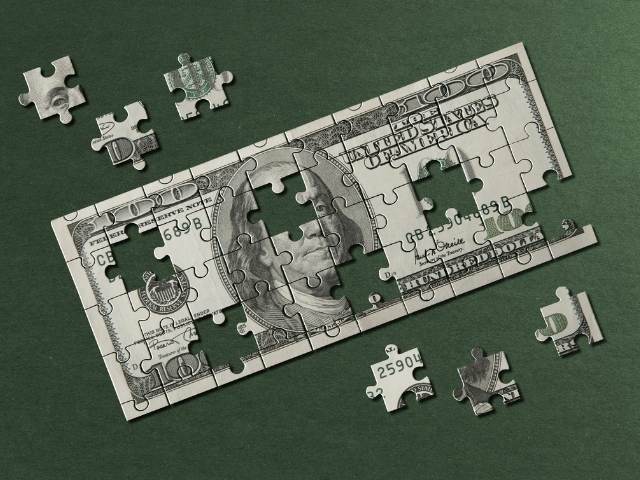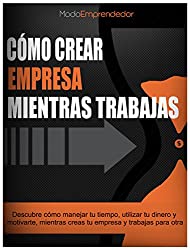
No matter what stage of your life you are in, financial education always is and will be a topic of great importance. And as time goes by, learning how to manage money to secure our future in monetary terms becomes even more relevant.
If you’re 30, you’re halfway to retiring and it’s time to think more seriously about your finances. It is possible that during your 20s you have built and established your professional career, you have acquired a house, a car and you feel that everything is going very well. However, we make many mistakes along the way, especially when it comes to money.
Maybe you’ve been a compulsive shopper, a lousy saver, a terrible planner, and you’re only good at spending. Regardless of the situation, it is mandatory that you fully master the following lessons that will teach you how to manage money at home and in other areas.
9 techniques to learn how to manage money correctly.
To learn how to manage your money it is essential that you have the right mindset. For example, many people with low incomes think that it is impossible to have a good financial situation. They lock themselves in “it’s not enough for anything”, or in “the situation is difficult”, without first giving themselves the opportunity to see a little beyond the obvious.
It is clear that if you earn less, it will be more difficult to manage money in more efficient ways, however it is not impossible at all. It simply requires a change in mindset that will happen little by little as you adopt better financial habits, and the first thing to start with is…
1. Stop spending everything you earn.
Many millionaires spend their money moderately and if they use it, it is to reinvest. What do you get by throwing all your money on unnecessary spending?
Thomas J. Stanley, author of the book The Millionaire Next Door, who has devoted much of his life to studying the lives of American millionaires, discovered that those who lived in the most luxurious mansions and drove the most expensive cars are not really rich. In fact they are submerged in debt and financial problems.
From now on, establish a savings percentage and do it when you receive money. If you think that you will save what you have left at the end of the month, you run the risk of not saving at all or even being in debt. Start with 10% and start to increase this amount gradually and to the extent of your possibilities.
It may also interest you: 85 strategies to learn how to save money at home.
2. Find out how much debt you are.
As time goes by, we allow debts to increase more and more, to the point of thinking that it is normal. It is possible that you have acquired a loan to pay for your studies, you are paying for your new apartment and the zero-kilometer car that you wanted so much. That without counting the credit card that always saves you and pays for your trips. Be that as it may, each time you acquire new and more expensive debts.
Also read: 5 financial decisions you will regret in the future.
Evaluate how much money you owe, set the minimum payment on the largest debts and use as much money as you can to pay off small debts. Putting an end to your debts will have a significant impact on your personal finances and will allow you to manage money with more peace of mind.
3. Define clear objectives for your money.
Ask yourself what you want the money for…
- To retire young.
- So that your children can study at any university.
- To invest in your sneaker collection.
- To help social and/or environmental causes.
- To get out of debt.
Whatever the reason, it’s important that you have one (and if it’s tied to making you happier, that’s even better). The reason is that having a ground pole will help you to be consistent with your actions. For example, when you are tempted to buy something you want (and don’t need), that reason It will give you the strength to stick to the budget (which we will see in the next point).
In his book Money: Master the Game, Tony Robbins explains what to him are the 5 financial goals that all people should have:
Goal 1: Generate enough money from investments to pay your basic monthly bills, such as rent, mortgage, food, energy and transportation.
Goal #2: Generate enough for basic needs and more for “fun things” like new clothes or entertainment.
Goal #3: Generate enough to ensure your financial independence. This means living entirely off compound interest and never having to work again.
Goal #4: Making your investments not only free you from work, but also improve your lifestyle. Earn even more so you can enjoy better vacations or eat at better restaurants.
Goal #5: Achieve absolute financial freedom. This means having enough money to do what you want at any time.
4. You must have a budget.
Surely you know the importance of a budget for your personal finances, but do you really have a budget? Are you following it properly? The reality is that few people govern their habits based on a budget.
It is very important that locate where every penny you earn goes and commit to a plan. It doesn’t matter if you spend money on clothes or travel, as long as these expenses are included in your budget.
If you know how to budget, you won’t get any nasty surprises when you look at how much money you have in your account. Knowing your financial habits will allow you to reduce unnecessary expenses and increase your savings.
Before seeing more techniques to learn how to better manage money I would like to ask you a favor. Simply vote from 1 to 5 to see how interesting you have found the article so far. Thank you very much!
5. Create an emergency fund.
An emergency fund is extremely important not only for your finances but also for your mental health. With any luck you will never have to face a health problem, a family calamity, a bankruptcy or the loss of a job.
But what would happen if, due to fate, you fell into an emergency situation without a fund with which to bear it?… It would be terrible.
On the other hand, not having a fund that protects you makes you a person more likely to fall into debt with credit cards, loans or spend all your savings.
Also read: How to create an emergency fund.
There is something you must be very clear about. One thing is savings and another very different is your emergency fund. Within your financial plans you must put money in these two variables that have different purposes. Savings are for investment and the emergency fund is to deal with situations that are out of our control.
6. Adapt to changes.
As you have seen, planning is essential but remember that plans are not set in stone. You must be flexible because situations can change.
The world economic situation, or yours, can change at any time and if you do not have the ability to adapt, you will not be able to execute your budget and ultimately you will end up making mistakes, as if you had not made a plan in the first place.
7. Diversify your investments.
After adopting better financial habits, you will find yourself in a position to be able to invest. It will be your decision what you do, but at this point it seems important to me to share 2 examples.
The first is from billionaire and philanthropist Ray Dalio. One of his strategies is to allocate 7.5% of his capital for investment in gold and another 7.5% in raw materials. Gold and commodities are often good investments, even during periods of high inflation.
Additionally, allocate 30% in stocks, especially during high growth seasons when you can earn more. Finally, place 55% in US bonds, which are very low risk.
Another example is that of Tony Robbins and his 3 “cubes”.
The security cube: This is where you put the investments that are safest, even if they are not necessarily the most profitable. Like for example bonds, which do not offer massive returns, but are very unlikely to lose value.
The growth cube: This is for investments that are riskier, which can give more profit but also bring big losses. Typically, this is where stock investments go, which tend to rise in value over the long term, although they can be volatile and lose value in the short term.
The cube of your dreams: This is where you put some of the profit you get from your other cubes. The cube of your dreams helps you improve your lifestyle.
Don’t forget that the main goal of achieving financial security is to spend your money in ways you enjoy. If you don’t have a dream cube, learning how to manage money isn’t as interesting as it could be.
8. Be patient and think long term.
Human beings, by nature, want to get results quickly. The problem is that on the way to learn how to manage money, we will encounter difficulties that may delay our progress and obtaining benefits.
Fortunately, the number one enemy is our inner voice that tells us that we are going too slowly.
You may be saving more than before, but when you see that another person is saving more money, your inner voice will tell you hundreds of times that just as you are going, you are not going anywhere.
It’s normal, but don’t give up. Never doubt the great results that can be obtained in the long term. Imagine how much you can save in one year…Now imagine how much you can save in 10.
9. Track your progress.
Like any plan, your process of learning how to better manage money should be reviewed from time to time. This in order to analyze and correct if necessary.
Remember that it is a long-term process in which external and internal conditions can change. If you don’t stop along the way and detail the results of your progress as planned, you’ll lose motivation and never reap the benefits of managing your finances well.
Conclusion.
Learning how to manage your money will not happen overnight. At the beginning it will be slow, you will not see fast results but consistency and determination will be your best allies. Also, over time you will become more organized and more aware of your finances. It will be a constant challenge that will bring great stability as a reward..
Last but not least, you should take time to prepare. You won’t learn how to manage money if you don’t grow your knowledge. Invest time in yourself, so you can make better investments with capital.
Thank you for reading this far and we hope this information will be of great help to you.
And remember, if you are really interested in creating your own business, you can read our book “How to create a company while working: Discover how to manage your time, manage your money and motivate yourself while creating a company and working for another” , where you will find all the information you need to found your own company, without having to leave your job.



